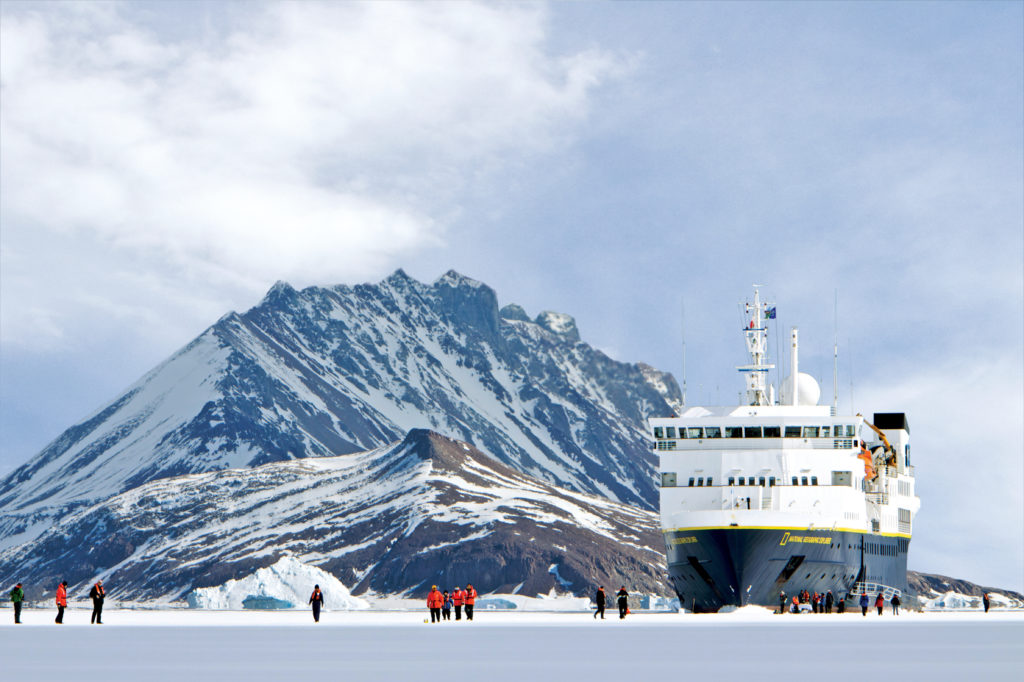

You must be serious about your training and meeting deadlines and doing things that you don't necessarily enjoy in order to have the opportunities to do the exciting parts of the job. It was fascinating to think that his work was not so different from ours.ĪMNH: What are some life lessons that you carry with you from your research?ĭonal: You need discipline. There, frozen in time, was his simple hut with all of his things left just as they were when he was there.
ANTARCTICA NEWS EXPLORER FULL
Our big American base equipped with so much–heat, horticulture, a full modern library–was just 100 yards away. Kids Son, six years old, and daughter, four years oldĪMNH: What's your most exciting memory of the place?ĭonal: The first time I walked into Scott's primitive hut from 1902, sitting out on the ice. It will help you much more than making an extra dollar." That was the best advice, to find something that excites you and do that. Major Influences "My uncle encouraged me to take a job doing something that interested me, or even volunteer for free, rather than trying to make money. in your training and meeting deadlines and doing things that you don't necessarily enjoy in order to get to do the exciting parts of the job." Life Lessons from the Field "You need discipline. I also enjoy playing the guitar, camping, boating, and scuba diving." Even in my time off I like to do things related to my work. Interests Today "If you find a job that's interesting, then your profession becomes your hobby. "There are wonderful lush kelp forests in the Irish sea, and I loved to fool around exploring them with my friends." Interests in Middle/High School Snorkeling off the coast. I have to write up papers about all of my work." It would take me half a day to write something. My parents got so frustrated with me, just staring at a blank page, unable to come up with an idea. Thoughts on Middle/High School "I hated English Composition.

Least Favorite Middle/High School Subjects English Composition For example, "dolphin-free tuna" happened because people spoke up.įavorite Middle/High School Subjects Science was the "least painful." Perhaps it could be a school project to ask your local store, or restaurants such as McDonalds, if they are selling Antarctic fish. We all need to question where the food we eat comes from. The Antarctic is like the canary in the coal mine: if we keep a watchful eye on it, we'll know if things such as global warming and climate are changing everywhere.ĪMNH: How can students everywhere be good stewards of our least known continent?ĭonal: Be careful about what you put into the environment and the ocean. In his spare time, he likes to study the early stages of Antarctic exploration! Donal has a real interest in the early explorers and the history of Antarctica.ĪMNH: Why should kids know about Antarctica?ĭonal: Kids should know about Antarctica because it's one of the most extreme continent on this planet, with 70% of the world's fresh water, and because the ozone depletion is there. He explores how animals live and thrive at very cold temperatures, particularly in the early stages of life. In many of the photos, the various horses that the men relied on to carry gear over the treacherous terrain can be seen.Donal is a marine biologist who is interested in animal physiology. In another, a group of men attempts to pull a heavily loaded sled through soft snow. In one photo, the hut that Scott and his men erected as a shelter sits under a blanket of snow on the banks of a frozen sea. The set of 11 photos shows some of the difficulties that Scott and his men likely faced on Antarctica's shores. Now, more than 100 years after the Terra Nova expedition, those photos will be up for sale at Christie's Auction House in London today (April 28), where they are expected to fetch at least $30,000 (20,000 British pounds). Ponting developed the negatives in the camp's tiny darkroom and sent the photos home to England. But the explorer's photos lived on, thanks to Herbert Ponting, the chief photographer for the Terra Nova mission.Īs Scott and his team trudged toward the South Pole, Ponting stayed behind at the Ross Island base camp, where a relief party brought Scott's camera before the captain became stranded in the snow. Scott and four other men from the so-called Terra Nova expedition perished on the long walk back from Earth's southernmost point. The photos depict day-to-day life at the base camp on Antarctica's Ross Island in the months leading up to Scott's trek to the South Pole in 1911 - a journey from which he never returned. Photographs taken by explorer Robert Falcon Scott during his ill-fated trip to Antarctica are being auctioned off in London today.


 0 kommentar(er)
0 kommentar(er)
